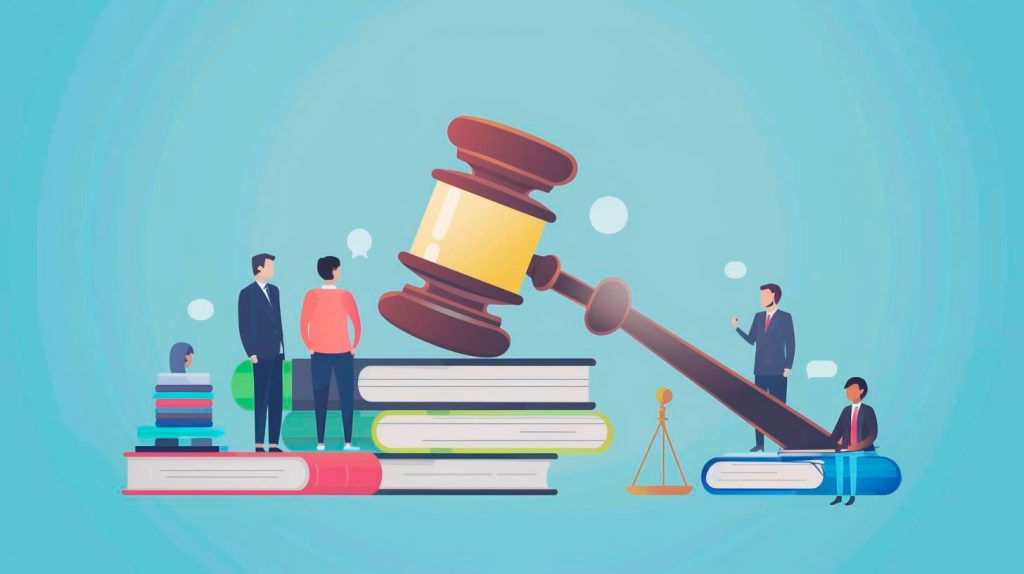
Strategies for Minimizing the Negative Impact of Legal Fees on Credit Scores
In this article, we will discuss strategies for minimizing the negative impact of legal fees on credit scores.
1. Negotiate Payment Plans
One of the first steps you can take to minimize the impact of legal fees on your credit score is to negotiate payment plans with your attorney. Many law firms are willing to work with clients to create a payment plan that fits their budget. By spreading out payments over a period of time, you can avoid a large lump sum payment that could negatively impact your credit score.
2. Use a Credit Card with a 0% Introductory APR
If paying for legal fees with cash is not an option, consider using a credit card with a 0% introductory APR. This can give you some breathing room to pay off the legal fees without accruing additional interest. Be sure to pay off the balance before the introductory period ends to avoid high-interest charges.
3. Consider a Personal Loan
Another option to pay for legal fees is to take out a personal loan. Personal loans typically have lower interest rates compared to credit cards, making them a more affordable option for financing legal expenses. Be sure to compare interest rates and terms from multiple lenders to find the best loan for your situation.
4. Keep Track of Expenses
It’s important to keep track of all legal expenses to ensure you are not overcharged and that you are aware of the total cost. By keeping detailed records of fees and expenses, you can better manage your budget and avoid any surprises when it comes time to pay your legal bills.
5. Budget Wisely
Creating a budget and sticking to it can help you manage your finances and avoid any financial surprises. By setting aside a portion of your income each month for legal fees, you can ensure that you have the funds available when needed without impacting your credit score.
6. Monitor Your Credit Score
Regularly monitoring your credit score can help you stay on top of any changes and address any negative impacts quickly. By reviewing your credit report, you can catch any discrepancies or inaccuracies that could be dragging down your score and take steps to correct them.
7. Seek Financial Counseling
If you are struggling to manage your legal fees and finances, consider seeking help from a financial counselor. A counselor can help you create a plan to pay off your debts, improve your credit score, and build a solid financial foundation for the future.
Legal fees can have a significant impact on credit scores if not managed properly. By negotiating payment plans, using credit cards with a 0% introductory APR, considering personal loans, keeping track of expenses, budgeting wisely, monitoring your credit score, and seeking financial counseling, you can minimize the negative impact of legal fees on your credit score and maintain financial stability during challenging times.
Remember, it’s important to address any financial issues promptly and work towards improving your credit score to secure a brighter financial future.
Understanding the Impact of Legal Fees on Credit Scores
The Link Between Legal Fees and Credit Scores
Legal fees can have a significant impact on your credit score, especially if you are unable to pay them on time. Unpaid legal fees can result in debt collection actions, which can be reported to credit bureaus and ultimately lower your credit score. In fact, a study by the Consumer Financial Protection Bureau found that medical debt, which is similar to legal fees in terms of collections, can lower credit scores by as much as 100 points.
It is important to note that not all legal fees will automatically lower your credit score. For example, if you are able to negotiate a payment plan with your attorney and make timely payments, your credit score may not be affected. However, if you ignore legal fees or are unable to pay them, it can have a negative impact on your credit report.
Strategies to Mitigate the Impact of Legal Fees on Credit Scores
There are several strategies you can employ to mitigate the impact of legal fees on your credit score. One of the most effective ways is to communicate openly with your attorney about your financial situation. They may be able to work with you to establish a payment plan that is manageable for you.
Additionally, you can explore alternative funding options such as legal financing or legal insurance to help cover the cost of legal fees. These options can alleviate financial burden and reduce the risk of defaulting on payments.
Another important strategy is to monitor your credit report regularly. By staying informed about any collections or delinquencies related to legal fees, you can take timely action to address any issues and prevent further damage to your credit score.
The Benefits of Addressing Legal Fees Early
Addressing legal fees early can have a positive impact on your credit score and overall financial well-being. By taking proactive steps to manage your legal expenses, you can avoid collections and delinquencies that can lower your credit score.
Furthermore, addressing legal fees early can help you avoid additional fees and penalties that may accrue if left unpaid. By prioritizing your legal expenses and making timely payments, you can prevent further financial strain and protect your credit score.
Legal fees can have a significant impact on your credit score if not managed properly. By understanding the link between legal fees and credit scores and employing strategies to mitigate any negative impact, you can protect your financial health and ensure a positive credit standing. Remember to communicate openly with your attorney, explore alternative funding options, and monitor your credit report regularly to address any issues promptly. By addressing legal fees early and responsibly, you can safeguard your credit score and financial well-being in the long run.
Factors that Influence How Legal Fees Affect Credit Scores
In this article, we will explore the factors that can influence how legal fees affect credit scores.
1. Amount of Legal Fees Incurred
The amount of legal fees you incur can have a direct impact on your credit score. If you are unable to pay your legal fees on time, it could lead to late payments being reported to credit bureaus. This can result in a negative impact on your credit score, making it harder for you to obtain credit in the future.
It is important to budget for legal expenses and prioritize paying them off to avoid any negative consequences on your credit score. If you are unable to pay the full amount, try to negotiate a payment plan with your lawyer to avoid any credit score damage.
2. Type of Legal Issue
The type of legal issue you are dealing with can also impact how legal fees affect your credit score. For example, if you are facing bankruptcy or foreclosure, the financial implications can be severe and may result in a significant impact on your credit score.
It is important to seek legal advice early on if you are facing financial difficulties to avoid escalating legal fees and potential negative effects on your credit score. A lawyer can help you explore options for debt relief or negotiate with creditors to minimize the financial impact on your credit score.
3. Timeliness of Legal Fees Payments
Timely payment of legal fees is crucial for protecting your credit score. If you consistently make late payments or default on your legal fees, it can result in negative entries on your credit report, which can lower your credit score.
Make sure to prioritize legal fees payments and set up reminders to ensure that you pay on time. If you are struggling to make payments, communicate with your lawyer to explore alternative payment options to avoid any negative impact on your credit score.
4. Utilization of Credit to Pay Legal Fees
Using credit to pay for legal fees can also impact your credit score, especially if you max out your credit cards or take out high-interest loans to cover the costs. High credit utilization ratios can lower your credit score and make it harder for you to obtain credit in the future.
If you need to use credit to pay for legal fees, make sure to keep your credit utilization ratio low to minimize the impact on your credit score. Consider exploring low-interest loan options or negotiating payment plans with your lawyer to avoid high-interest debt accumulation.
Legal fees can have a significant impact on your credit score if not managed properly. By understanding the factors that can influence how legal fees affect your credit score, you can take proactive steps to protect your financial health.
Make sure to budget for legal expenses, seek legal advice early on, prioritize timely payments, and avoid excessive use of credit to cover legal fees. By taking these steps, you can minimize the negative impact of legal fees on your credit score and maintain financial stability.
Protecting Your Credit Score When Dealing with Legal Matters
In this article, we will discuss some important tips and strategies to help you safeguard your credit score while navigating legal matters.
Why Your Credit Score Matters
Your credit score plays a crucial role in your financial health and well-being. It is a key factor that lenders consider when determining whether to approve you for a loan or credit card. A good credit score can help you qualify for lower interest rates and better loan terms, while a poor credit score can make it difficult to secure credit or loans.
During legal proceedings, such as a divorce or bankruptcy, your credit score may be negatively impacted if you are not careful. For example, missed payments, high levels of debt, or other financial issues can all contribute to a lower credit score. This can make it harder to secure credit in the future and can also impact your ability to rent an apartment, buy a car, or even get a job.
Tips for Protecting Your Credit Score
1. Monitor Your Credit Report Regularly
One of the best ways to protect your credit score is to monitor your credit report regularly. By checking your report on a regular basis, you can spot any errors or potential issues that may be negatively impacting your score. You can request a free credit report from each of the three major credit bureaus – Equifax, Experian, and TransUnion – once a year.
2. Pay Your Bills on Time
Timely payments are crucial for maintaining a good credit score. Make sure to pay all of your bills on time, including your mortgage, credit card bills, and other debts. Even one missed payment can have a negative impact on your credit score, so it is important to stay organized and make payments on time.
3. Keep Your Debt Levels in Check
High levels of debt can also harm your credit score. Try to keep your credit card balances low and avoid taking on more debt than you can afford to repay. Paying off existing debt and avoiding new debt can help you maintain a healthy credit score.
4. Communicate with Your Creditors
If you are facing financial difficulties due to legal matters, such as a divorce or bankruptcy, it is important to communicate with your creditors. Explain your situation and explore potential options for managing your debt, such as payment plans or debt consolidation. Many creditors are willing to work with you to find a solution that works for both parties.
Legal matters can be challenging, but they do not have to ruin your credit score. By following these tips and strategies, you can protect your credit score while dealing with legal issues. Remember to monitor your credit report regularly, pay your bills on time, keep your debt levels in check, and communicate with your creditors. By taking proactive steps to safeguard your credit score, you can set yourself up for financial success in the future.
For professional legal advice and assistance with protecting your credit score during legal matters, contact our team of experienced lawyers today.













As long as you keep up with your payments and don’t miss any, your credit score should remain unscathed.
Don’t worry, as long as you stay on top of your payments, your credit score should be just fine. Keep up the good work!
As long as you stay current on your payments, legal fees should have no impact on your credit score.
Nah fam, legal fees ain’t gonna mess with your credit score. As long as you pay ’em on time, you should be all good!
Legal fees themselves won’t affect your credit score, but missed payments definitely can. Make sure to stay on top of it!
Just make sure to pay your legal fees on time and in full to avoid any negative impact on your credit score.
Legal fees can really add up, but I don’t want them messing with my credit. Any tips on how to avoid that?
Legal fees themselves won’t directly affect your credit score, but if you miss payments, that’s a different story.
I’ve gotta pay my lawyer a hefty sum for these legal fees. Will this have any repercussions on my credit score?
I’ve heard conflicting info on whether legal fees can hurt your credit score. What’s the deal?
Just make sure to budget for your legal expenses and make timely payments to steer clear of any credit score issues.
I’m stressed about paying off my legal fees on time. Can someone tell me if this will impact my credit score?
Yo, I’m thinking about hiring a lawyer, but I’m worried about how it might affect my credit. Any advice?
I heard that if you don’t pay your legal fees, it can ding your credit. Is that true?
As long as you handle your legal fees responsibly and pay them on time, your credit score should remain unaffected.
Legal fees are such a pain, but I don’t want them messing with my credit score. Is there anything I should watch out for?
Bro, my credit score took a hit after I had to pay a lawyer for some legal fees. What gives?